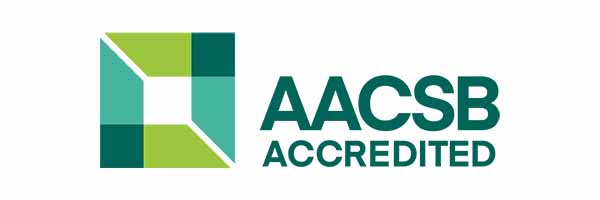MSc Business Analysis & Consulting (January)
ApplyKey facts
- Start date: January
- Accreditation: triple-accredited business school AACSB, EQUIS & AMBA
- Study mode and duration: 12 months full-time
Study with us
- gain practical, evaluative and analytical skills
- learn how to use business models to develop strategy for organisations
- work on a project for a leader organisation
The Place of Useful Learning
UK University of the Year
Daily Mail University of the Year Awards 2026
Scottish University of the Year
The Sunday Times' Good University Guide 2026
Why this course?
The MSc in Business Analysis & Consulting has been developed to equip you with the practical, evaluative and analytical skills to allow you, as a future manager or consultant, to influence and develop strategy and performance within organisations.
You'll learn the key quantitative business analysis methods necessary to evaluate performance.
Industry involvement is at the heart of the course. You'll have numerous external clients throughout the year in your experiential learning class, and have the opportunity to undertake your summer project in collaboration with an external organisation.
In addition, you'll learn how to use business models to support the development of strategy for organisations and to help them to monitor and measure strategic processes.
By the end of the programme, you'll have developed the key skills of business consulting, which are applicable to any organisation.
Meet the students
Oliver Leonard tells us about his experience on this course.

Through the programme you'll:
Upon graduating, you'll be equipped with the analytical and strategic capabilities needed to address complex global issues, including sustainability. Through modules such as Strategy Modelling & Management and Managing Business Operations, you'll develop the skills to tackle real-world sustainable challenges.
The course also includes consultancy projects with external organisations, including those in the public and third sectors, allowing you to lead on meaningful sustainability-focused initiatives.
Graduates of this programme are highly valued by employers across sectors due to their proficiency in areas such as business analytics and related AI applications, and quantitative problem-solving that supports decision-making.
The curriculum includes modules on Big Data for Decision Making, Business Simulation, and Quantitative Business Analysis, which are aligned with current industry needs.
Alumni have gone on to work with leading firms such as:
- Deloitte
- PwC
- EY
- KPMG
- Accenture
- IBM
- Amazon
- JP Morgan
- Morgan Stanly
- Scottish Power
- Scottish Water
- the NHS
This demonstrates the programme’s strong reputation and relevance in the job market.
Strathclyde’s MSc in Business Analysis & Consulting benefits from the university’s extensive network of partnerships. You'll engage in live consultancy projects with organisations such as the NHS, Diageo, British Airways, and RBS. These collaborations provide practical insights and exposure to real-world challenges, ensuring that your learning is both relevant and applicable.
The programme fosters a culture of reflective practice, collaborative problem-solving, and strategic thinking. The Becoming an Effective Business Analyst module, which runs throughout the academic year, encourages you to engage with complex problems presented by external managers. This approach nurtures a mindset of continuous learning and innovation.
We encourage our students to be bold in their thinking, ambitious in their goals, and collaborative in their approach. These qualities are essential for leadership and long-term success in the business analysis and consulting field.
You'll have access to Strathclyde Inspire, a unique sector-leading initiative that supports and encourages all forms of entrepreneurship across the university. This initiative will provide you with opportunities to develop an entrepreneurial mindset through access to a range of entrepreneurial activities, something much valued in business.
What you'll study
The core Becoming an Effective Business Analysis class runs over both semesters and provides you with a practical environment to apply business analysis and consulting tools from other classes into challenging real problems offered by industrial clients.
Semester 1 is designed to provide you with the fundamental technical and soft knowledge required for a business analyst/consultant. This includes key skills to structure client problems, analyse hard/soft data, build forecasting models and managing the operations.
Semester 2 is designed to extend your core skills and provide you with opportunities through a broad range of electives to help you to have specialised knowledge in areas such as risk analysis, strategy modelling, big data analytics and business simulation. You also have the opportunity to study a business class offered by other departments in Strathclyde Business School during the Spring School.
Becoming an Effective Business Analyst
This class takes place over both semesters. Every year, case studies and challenging projects are presented to you by organisations such as Accenture, British Airways, RBS and Simul8, NHS, Diageo, Valentia Partners.
Summer project
Many MSc projects are carried out for an external organisation. You'll spend three months from June to September working on a project of importance to their clients. The aim is to gain direct experience in applying the concepts and theories studied on the course. Project clients include many major companies, in fields ranging from aerospace to whisky distilling. These projects will usually be unpaid, however, all costs such as travel and accommodation will normally be covered by the host organisation if out of town.
Distance learning
We also offer the course via online distance learning so you can study when it suits you. This is a flexible degree and duration can vary. For further information, see Business Analysis & Consulting (distance learning).
Triple-accredited business school
Becoming an Effective Business Analyst
The class will consist of two key elements:
1. A series of semi- or unstructured business problems, typically introduced by a manager from an outside organisation. The business problems will typically relate to a topic/technique recently covered in one of the other modules.
2. Experience is augmented, and integrated with, the rest of the course by a series of workshops on directly related topics that will provide guidance on key skills development.
Foundations of Operational Research & Business Analysis
This class will explore the generic problem solving process which underpins the provision of decision support. In particular, it'll consider the role of modelling in that process. The activities of problem structuring, data collection and analysis, identification and evaluation of options, communication and implementation of learning, findings and recommendations will each be discussed along with the issues pertaining to each of them.
Managing Business Operations
Quantitative Business Analysis
Quantitative Business Analysis runs over one semester but in two parts. The first part provides an introduction to the basic theory and application of statistical modelling. Topics covered included data analysis, probability theory, distributions and moments, estimation and hypothesis testing.
The second part focuses mainly on two areas - regression modelling and multivariate analysis. While key background theory will be presented, the emphasis is on the generation and interpretation of output from commercially available software.
Spreadsheet Modelling & Demand Forecasting
This module will demonstrate how spreadsheets can be used to support the analytical techniques, as well as being used to support technical report writing.
Most prominence is given to demand forecasting and you'll be introduced to different types of forecasting technique for short term smoothing through to decompositional analysis. These methods will be implemented using spreadsheet models.
Strategy Modelling & Management
Choose three
Business Simulation Methods
The module will focus on the main two forms of business simulation; discrete-event simulation (DES) and system dynamics (a continuous simulation technique). For DES, the class will start with an introduction, aiming to familiarise students with the concept and its use.
It continues with discussing a rational approach to simulation using a number of examples from manufacturing and service operations. For system dynamics the class will provide a background to system dynamics including its links to other modelling techniques being taught on the course, in particular, its links to problem structuring methods.
Risk Analysis & Management
10 credits
Risk analysis plays an important role in most business operations. This module is concerned with assessment and measurement of risk, and with the development of risk mitigation strategies that address stakeholder concerns.
Through this module we'll explore the entire process of structuring a risk problem, modelling it, supporting and communicating recommendations, both theoretically and in practice.
Risk management is linked with decision analysis in so far as we explore decision making under uncertainty and it has links with quantitative business analysis as we explore the use of statistics in understanding risk. However, the topic has some unique attributes such as risk communication and the role that experts play in risk assessment.
The module is taught in two parts. The first part is concerned with developing a solid grounding in the techniques and methods used for supporting risk management. The second part explores the application of the basic techniques through a series of case studies.
Business Information Systems
The class adopts a process-based approach, ie all discussion follows the logic of the business processes. You'll be introduced to Business and Information Systems (BIS) as well as the various types of IS, including the databases, Enterprise Resource Planning (ERP) systems, knowledge-based systems, corporate portals and collaboration support systems.
Lectures will provide you with the conceptual knowledge, and in tutorials you'll gain hands-on experience of using packages of the various IS categories.
Performance Measurement & Management
The class focuses at the strategic, organisational level of PMM while providing the essential knowledge and skills at the technical level.
The module starts with presenting the background to performance measurement to provide you with an understanding of the roots of some of the common problems in measuring and managing performance in organisations. This will follow with discussing PMM from five different but highly inter-related perspectives, namely stakeholder, customer, comparative, operations and integrative perspectives.
Business Analytics (20 credits)
Every two days, we generate as much data as the data generated in all human history up to 2003. From online data on every click of the mouse on the internet through the huge upsurge in manufacturing companies’ use of sensors to sports organisations collecting in-game data. With these increased quantities of data comes an increased need for tools to make sense of the main messages coming from these data.
The module will build on the fundamental multivariate statistics by developing both visualisation and advanced analysis techniques relevant in the area of big data. The focus will be on application and interpretation of techniques and there will be an investigation of what makes good data. The module will develop both new theoretical knowledge in the form of analytics techniques as well as new software skills in relevant analytics software.
SBS Spring School Module
These are a selection of Strathclyde Business School classes that are on offer for the duration of Spring Break that students on the course can select to take.
Please note that classes may differ from year to year depending on what departments have on offer. Find out more about the Spring School here.
Project/Dissertation
Learning & teaching
Core and elective classes will be taught across two semesters running from September to December and January to March. Classes will be taught through a combination of lectures and hand-on software sessions, alongside online material, with a variety of group and individual study and assignments. The project/dissertation is undertaken during the summer months.
Assessment
Classes are assessed by various methods, including written assignments, exams, practical team projects, presentations and individual projects. Exams will take place at the end of each semester in December and April/May.
Strathclyde Business School
Strathclyde Business School was founded in 1948 and is a pioneering, internationally renowned academic organisation with a reputation for research excellence.
One of four faculties forming the University of Strathclyde, SBS is a triple-accredited business school (AACSB, EQUIS and AMBA) and was the first business school in Scotland to achieve this accolade in 2004.
The Business School is home to seven subject departments and a number of specialist centres, all of which collaborate to provide a dynamic, fully-rounded and varied programme of specialist and cross-disciplinary courses.
Strathclyde Inspire
At Strathclyde, we live and breathe entrepreneurship. The University of Strathclyde started life as a place of useful learning, an institution that wanted to make a difference through dong things innovatively, boldly and socially oriented; this founding mission has never been more relevant. Today, we continue to nurture generations of influencers, innovators and industry leaders, empowering our staff, students and alumni to embrace entrepreneurship, transforming their own lives and the lives of others.
Strathclyde Inspire supports and encourages entrepreneurship in all its forms, so whether you want to be more entrepreneurial in your approach to life, business and society, have an idea for a business, or are considering commercialising your research, we will support you at every stage of your journey.

Entry requirements
| Academic requirements | Minimum second-class Honours degree, or overseas equivalent (view the entry requirements for your country) in business, economics, engineering or the social sciences. Applications from those with other degrees are also encouraged. Although some quantitative analytical tools are taught and used during the course, only basic mathematical knowledge is necessary before starting the course. |
|---|---|
| English language requirements | Students whose first language is not English must have a minimum of 6.5 IELTS score, with no individual score lower than 5.5. Get more information about the English language requirements for studying at Strathclyde. |
Fees & funding
All fees quoted are for full-time courses and per academic year unless stated otherwise.
Fees may be subject to updates to maintain accuracy. Tuition fees will be notified in your offer letter.
All fees are in £ sterling, unless otherwise stated, and may be subject to revision.
Annual revision of fees
Students on programmes of study of more than one year (or studying standalone modules) should be aware that the majority of fees will increase annually.
The University will take a range of factors into account, including, but not limited to, UK inflation, changes in delivery costs and changes in Scottish and/or UK Government funding. Changes in fees will be published on the University website in October each year for the following year of study and any annual increase will be capped at a maximum of 10% per year. This cap will apply to fees from 2026/27 onwards, which will not increase by more than 10% from the previous year for continuing students.
| Scotland | £14,250 |
|---|---|
| England, Wales & Northern Ireland | £14,250 |
| Republic of Ireland |
If you are an Irish citizen and have been ordinary resident in the Republic of Ireland for the three years prior to the relevant date, and will be coming to Scotland for Educational purposes only, you will meet the criteria of England, Wales & Northern Ireland fee status. For more information and advice on tuition fee status, you can visit the UKCISA - International student advice and guidance - Scotland: fee status webpage. Find out more about the University of Strathclyde's fee assessments process. |
| International | £31,100 |
| Additional costs | Course materialsClass materials comprise textbooks and course handbooks. All of the compulsory handbooks are available to students free on the VLE. Some classes may have a recommended core textbook which you may wish to purchase but copies will be available in the University Library. Placements & field tripsMay incur travel costs depending on clients and project placement. Will be confirmed with students before commencement of the placement. International studentsInternational students may have associated visa and immigration costs. Please see for more information. Other costsStudents are required to submit two hard copy dissertations. An average cost will be £10-15 including delivery to the department. |
| Available scholarships | Take a look at our Business School scholarships. |
Please note: the fees shown are annual and may be subject to an increase each year. Find out more about fees.
How can I fund my course?
Scottish postgraduate students
Scottish postgraduate students may be able to apply for support from the Student Awards Agency Scotland (SAAS). The support is in the form of a tuition fee loan and for eligible students, a living cost loan. Find out more about the support and how to apply.
Don’t forget to check our scholarship search for more help with fees and funding.
Students coming from England
Students ordinarily resident in England may be to apply for postgraduate support from Student Finance England. The support is a loan of up to £10,280 which can be used for both tuition fees and living costs. Find out more about the support and how to apply.
Don’t forget to check our scholarship search for more help with fees and funding.
Students coming from Wales
Students ordinarily resident in Wales may be to apply for postgraduate support from Student Finance Wales. The support is a loan of up to £10,280 which can be used for both tuition fees and living costs. Find out more about the support and how to apply.
Don’t forget to check our scholarship search for more help with fees and funding.
Students coming from Northern Ireland
Postgraduate students who are ordinarily resident in Northern Ireland may be able to apply for support from Student Finance Northern Ireland. The support is a tuition fee loan of up to £5,500. Find out more about the support and how to apply.
Don’t forget to check our scholarship search for more help with fees and funding.
International students
We've a large range of scholarships available to help you fund your studies. Check our scholarship search for more help with fees and funding.
International students
We've a thriving international community with students coming here to study from over 140 countries across the world. Find out all you need to know about studying in Glasgow at Strathclyde and hear from students about their experiences.

Careers
The combination of the quantitative and qualitative skills learned, along with the real experience of working with various clients problems throughout the course, will make you attractive to employers. By the end of the programme you'll be well placed for a client focussed career by providing model-based decision support to management at a strategic and operational level. For the last decade our graduates have been able to find jobs across different sectors from oil and gas industry, hospitality to junior and senior consultancy roles.
Examples of graduate employers include:
- NHS
- PWC
- SYSTRA
- Scottish Enterprise
- British Petroleum
- Hilton Worldwide
- Mabbett
- Valentia Partners
- RBS
- North Highland
Our students

Adam Atri
There’s a real mix between the traditional classroom environment, and hands on experience working with live case studies and real industry clients.

Chandrava
This course is well thought out and well structured. All the components of the course are vital in building up an overall portfolio of a student. The idea of experiential learning is successfully implemented, which yields the best from every student.

Minh Thong Trinh
The lectures are interesting and have a combination of theoretical and practical knowledge. Besides the research activities, we have sessions with companies involved, which is an essential part of a consulting course.
Glasgow is Scotland's biggest & most cosmopolitan city
Our campus is based right in the very heart of Glasgow. We're in the city centre, next to the Merchant City, both of which are great locations for sightseeing, shopping and socialising alongside your studies.
Apply
For information and guidance on the application process, take a look at our How to Apply web page.
Contact us
SBS Postgraduate Admissions
Telephone: +44 (0)141 553 6105 / +44 (0)141 553 6116
Email: sbs.admissions@strath.ac.uk
Strathclyde Business School, University of Strathclyde
199 Cathedral Street
Glasgow
G4 0QU
Have you considered?
We've a range of postgraduate taught and Masters courses similar to this one which may also be of interest.




